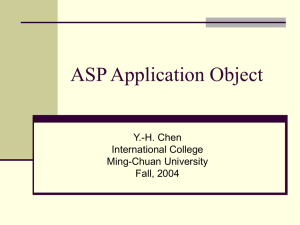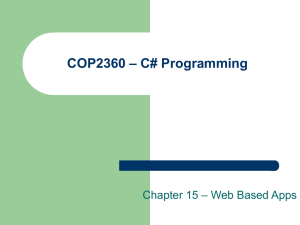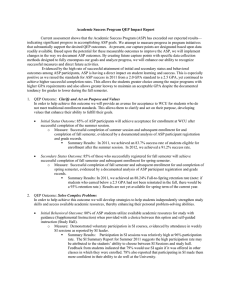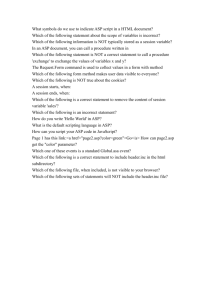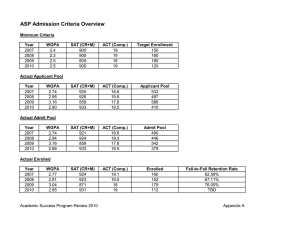The First Year Experience Program at WCU
advertisement
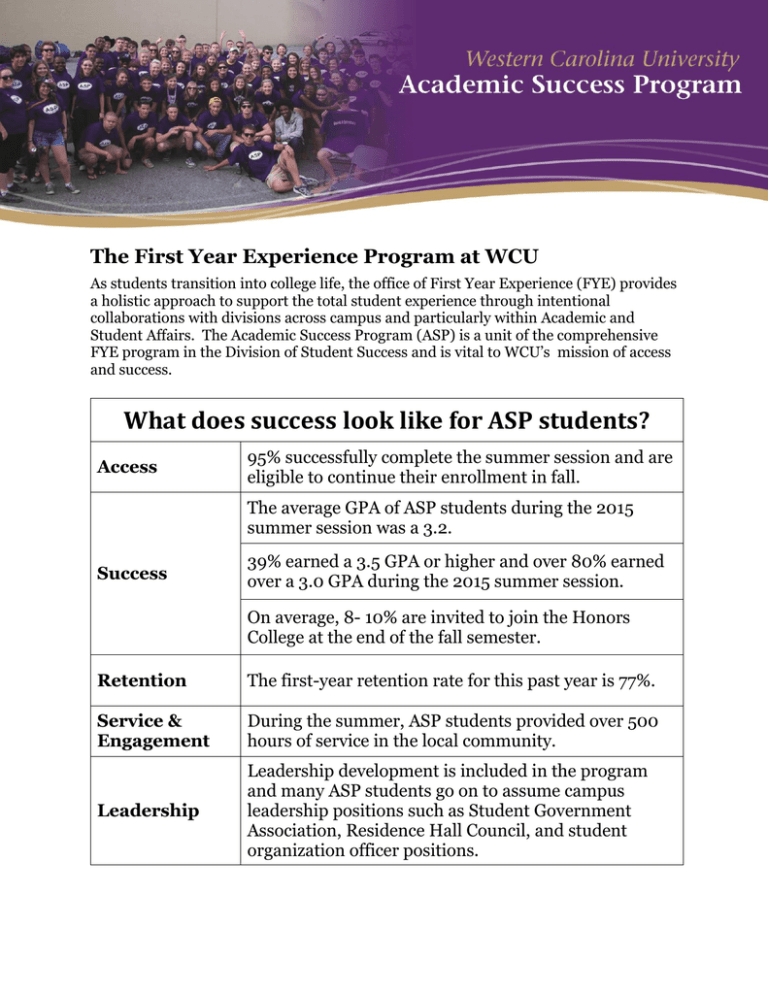
The First Year Experience Program at WCU As students transition into college life, the office of First Year Experience (FYE) provides a holistic approach to support the total student experience through intentional collaborations with divisions across campus and particularly within Academic and Student Affairs. The Academic Success Program (ASP) is a unit of the comprehensive FYE program in the Division of Student Success and is vital to WCU’s mission of access and success. What does success look like for ASP students? Access 95% successfully complete the summer session and are eligible to continue their enrollment in fall. The average GPA of ASP students during the 2015 summer session was a 3.2. Success 39% earned a 3.5 GPA or higher and over 80% earned over a 3.0 GPA during the 2015 summer session. On average, 8- 10% are invited to join the Honors College at the end of the fall semester. Retention The first-year retention rate for this past year is 77%. Service & Engagement During the summer, ASP students provided over 500 hours of service in the local community. Leadership Leadership development is included in the program and many ASP students go on to assume campus leadership positions such as Student Government Association, Residence Hall Council, and student organization officer positions. Academic Success Program The Academic Success Program (ASP) provides an opportunity for students who meet the criteria for conditional admission to WCU to begin their college experience early and to prepare them for success in college and beyond. This program is designed to provide a full year of support to facilitate a successful first-year experience and to help students develop skills to excel in their college career. It helps motivate students to set higher goals in school and in life and helps hold students accountable for demonstrating attitudes and behaviors that coincide with reaching their goals. Summer Program Components The program begins with a mandatory five-week summer session, which includes a two-day WCU Orientation. During the summer session, students are enrolled in three classes for a total of seven hours of academic credit. The focus of the program is on developing the students’ reading and writing skills to enhance and support their successful transition to the rigors of college-level requirements and expectations. The three classes are paired together to form a Summer Academic Theme, allowing the instructors to work in teams to provide a collaborative learning experience. Each Summer Academic Theme includes a field trip and a service learning component to involve the students and engage them in becoming responsible and active participants in learning. The students meet with their academic advisor during the summer session and begin to explore academic and life goals. Faculty and staff meet weekly to discuss individual student issues and concerns and if interventions are warranted. ASP students live together in the residence hall with their classmates and a team of experienced Resident Assistants who are carefully trained as first-year mentors. ASP students are held to a high standard of student conduct at all times during their enrollment in the program, and must complete a participation agreement which outlines guidelines and expectations. During their free time and on weekends, students have the opportunity to plan and participate in special activities that may include trips around the area, special sporting events, and other regional attractions. Successful participation in and completion of the ASP summer session (earning at least a C in each course and having at least a 2.5 overall GPA) allows students to continue at WCU in the fall with improved skills and confidence. At the end of the summer, students are recognized in a special closing ceremony and receive awards for their participation and academic achievement. First-Year Program Components ASP students are also supported and monitored throughout their first year of enrollment: Academic advisors continue to serve as students’ primary resource and support person. Students continue to be co-located as part of Western Carolina PEAKS, a living-learning community. Students are enrolled in a one-hour credit course in the fall, LEAD 160: Student Development and Leadership. The purpose of the course is to support the continuing transition to college as students develop leadership skills. Students are assigned to a Peer Mentor, upper classmen who serve as a role model and a peer educator. Academic progress is monitored through the use of a progress reporting system.
